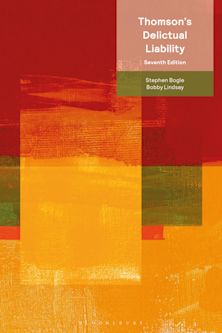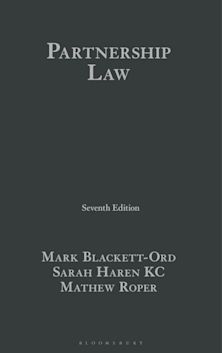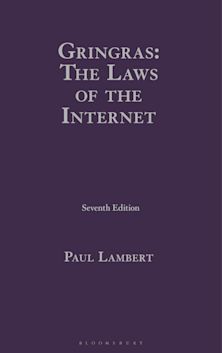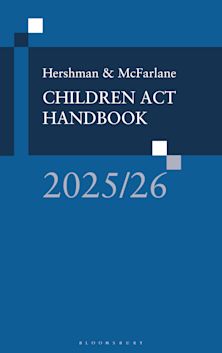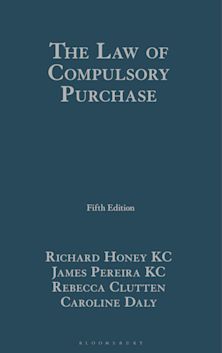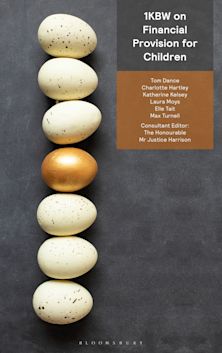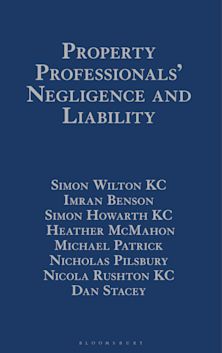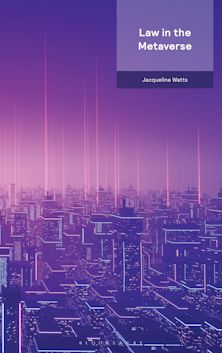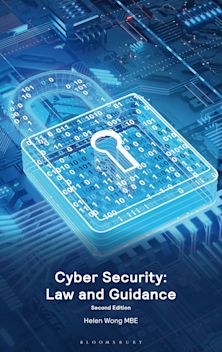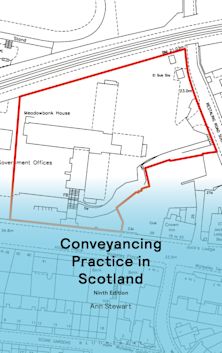- Home
- ACADEMIC
- Law (Professional)
- The Right to be Forgotten
The Right to be Forgotten
- Delivery and returns info
-
Free CA delivery on orders $40 or over
You must sign in to add this item to your wishlist. Please sign in or create an account
Description
The Right to be Forgotten is one of the most publicised areas of the GDPR and has received massive worldwide publicity following judicial and legal developments in Europe.
The book covers the Right to be Forgotten, Erasure and Forgetting, Data Protection, GDPR, the Data Protection Act 2018 and Brexit. The Google Spain case received worldwide media attention and legal interest, and cases and disputes on the Right to be Forgotten are increasing.
Brexit issues in relation to data protection and the Right to be Forgotten are considered in this new title as a relevant component that may affect some of the contours of this new and expanding legal right.
Table of Contents
Chapter 1 The Problem of Time
Chapter 2 Big Bang
Chapter 3 Problems Facing Individuals
Chapter 4 Online Tools
Chapter 5 Legal Backdrop
Chapter 6 The Parties of Data Protection
Chapter 7 Forgetting and Other Rights
Chapter 8 Enhanced Regime
Chapter 9 Responses
Chapter 10 Practical Issues Facing Individuals
Part B Right to be Forgotten: The Details
Chapter 11 The Right
Chapter 12 The RtbF Rights and Streams
Chapter 13 Additional RtbF Obligations
Chapter 14 Exemptions
Part C Official Guidance
Chapter 15 The WP 29 Guidance on Google Spain
Part D EU Case Examples
Chapter 16 EU Case Law Examples
Part E National Case Law
Chapter 17 National Case Law: United Kingdom
Chapter 18 Successful UK RtbF Case – NT2
Chapter 19 Unsuccessful UK RtbF Case – NT1
Chapter 20 ICO and the RtbF
Chapter 21 UK Law
Chapter 22 UK Brexit and Data Protection
Part F Additional Cases
Chapter 23 Additional Cases
Part G Media Issues
Chapter 24 Media
Part H Additional Solutions: Options to Consider
Chapter 25 Potential Additional Solution
Part I Impact, Commentary and Future
Chapter 26 Conclusion: Impact and Future
Appendices
Amanda Todd Transcript
Google Spain: Reference to Legal Provisions
Product details
| Published | Apr 25 2019 |
|---|---|
| Format | Hardback |
| Edition | 1st |
| Extent | 544 |
| ISBN | 9781526510105 |
| Imprint | Bloomsbury Professional |
| Dimensions | 248 x 156 mm |
| Publisher | Bloomsbury Publishing |
About the contributors
Reviews
-
This is an essential text on an important, new area of law.
The Law Society Gazette
-
An excellent deep dive into the Right to be Forgotten. I would recommend anyone working in privacy, especially within a technology environment, to read this.
Stuart Anderson, Managing Director, XpertDPO
-
With this book, Paul Lambert achieved one of the very first, truly profound and up-to-date analyses to the Right to be Forgotten, dedicated not merely to the scope of Article 17 of the GDPR, but also to the path to its evolution, including the widely known 'Google Spain' decision of the European Court of Justice (often seen as a 'Big Bang'), and national law developments, especially in the UK. Since digital memory never forgets and information merging progresses in somewhat alarming ways, manifesting itself in today's threats - blackmailing, stalking, revenge porn, deep fakes, to name but a few - the author points out the strengths and weaknesses of this legal concept. This clearly structured book is therefore highly recommended to all those who would like to develop a deeper understanding of the necessities and different views going beyond Article 17 of the GDPR to approach the significance of a 'digital amnesia' which should by no means be underestimated.
Christopher Schmidt, Magister of Law Data Privacy Specialist, certified CIPP/E, CIPM, CIPT, CBSA
-
Dr. Paul Lambert's book succeeds in offering an astonishing and prescient examination of the privacy implications and consideration of the right to be forgotten in the digital age. The internet and technologies using personal data are built to remember and never forget, so the right to be forgotten not only explores ethical and legal questions but technical challenges as well. Dr. Lambert leaves no stone unturned in his examination of the right to be forgotten and offers a wide range of information about its ripple effects on privacy in the digital world as we know it.
Debbie Reynolds, EimerStahl
-
With “Right to be Forgotten - Interpretation and Practice Textbook”, Paul Lambert goes well beyond the legal analysis of the right to be forgotten that can be found in the current literature. For the first time the reader gets a comprehensive approach to the problem of data processing and management across long periods of time and how it connects with the will of data subjects that such processing and disclosure be erased and thus forgotten. Dr. Lambert addresses the legal problem starting from a societal approach of great importance reflected on chapters one to three. This is key to understanding how the need to be forgotten came to be an important legal issue of our time and how it influenced the law. The author then proceeds to analyze the legal framework and regime for the right to be forgotten with great detail and special attention to its caselaw origins at the CJEU but without forgetting national case law and the guidance of the Article 29 Working Party. This is done with clear language and practical examples to illustrate analysis. Paul Lambert's “Right to be Forgotten - Interpretation and Practice Textbook” immediately ranks as fundamental work regarding this new and important right and constitutes an important tool for any operator in the privacy and data protection ecosystem.
Domingos Soares Farinho Professor, University of Lisbon School of Law Privacy and Data Protection Lawyer
-
The internet allows our misdemeanours and mistakes to come back to haunt us. Digital footprints are visible long after the storm has past and human interest has waned. The right to be forgotten balances this out by enabling some people to wipe the digital slate clean. The right is still in its infancy and finding its feet however and Paul Lambert's book provides what every data protection lawyers really need right now, that is a clear and simple exposition of how the right can be contextualised and put within the broader data protection framework.
Professor Phillip Johnson, Cardiff University














